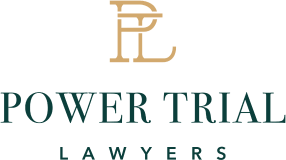- Free Consultation: (213) 800-7664 Tap Here to Call Us
Restraining Orders–An Overview: Which Form is Required for Your Case?
California Restraining Order Forms
The need for a restraining order often comes up during exceptionally challenging times. For this reason, it is common for those seeking the protection of a California restraining order to feel overwhelmed by the process. However, if you believe you need a restraining order, it is imperative that you do not let anything stand between you and your safety.
At Power Trial Lawyers, P.C., we recognize that the thought of pursuing a restraining order can feel daunting, and we’re here to help in any way we can. For starters, we’ve compiled a list of all the necessary forms you will need to complete to file any type of restraining order in California.
Types of Restraining Orders in California (with Links to the Required Forms)
In California, there are several types of restraining orders. Each type of restraining order has its unique requirements and processes, but all serve the common purpose of offering legal protection from various forms of abuse, harassment, or violence. Below is a list of the various California restraining orders, as well as links to the forms you need to complete to file for that particular restraining order.
Domestic Violence Restraining Order
Domestic Violence Restraining Orders (“DVRO”) are designed to protect individuals from abuse or threats of abuse from someone they have a close relationship with, such as a spouse, domestic partner, or someone they are dating. A Domestic Violence Restraining Order can include terms that proscribe certain harassing or abusive conduct. A judge can also issue a stay-away order or an order of eviction, requiring the restrained party to leave a joint residence.
Request for Domestic Violence Restraining Order (DV-100) – This is the basic DVRO form, where you will explain who you are seeking protection from and describe the abuse you’ve experienced.
Confidential CLETS Information (CLETS-001) – In this form, you provide detailed information about the person from whom you are seeking protection. The other party will not receive a copy of this form.
Notice of Court Hearing (DV-109) – This form is used primarily by the judge when ordering a hearing on your petition for a DVRO; it tells you when your court date is scheduled. You only need to fill out Sections 1 and 2.
Temporary Restraining Order (DV-110) – If you are seeking a Temporary Restraining Order, you’ll need to complete Sections 1 and 2 of this form.
Income and Expense Declaration (FL-150) – This is an option form that you only need to complete if you are seeking attorney’s fees, spousal support, or child support.
Request for Child Custody and Visitation Orders (DV-105) – This form is used if you have children with the other party.
Proof of Personal Service (DV-200) – This form is returned to the court after you served the other party.
Civil Harassment Restraining Order
Civil Harassment Restraining Orders (“CHRO”) are aimed at providing protection from stalking, harassment, threats, or violence by someone not closely related to the petitioner. This can include neighbors, roommates, or more distant family members.
Request for Civil Harassment Restraining Orders (CH-100) – This is the basic CHRO form, where you will explain who you are seeking protection from and describe the harassment you’ve experienced. If you need additional room to complete CH-100, you can attach Form MC-020.
Confidential CLETS Information (CLETS-001) – In this form, you provide detailed information about the person from whom you are seeking protection. The other party will not receive a copy of this form.
Notice of Court Hearing (CH-109) – This form is used primarily by the judge when ordering a hearing on your petition for a DVRO; it tells you when your court date is scheduled. You only need to fill out Sections 1 and 2.
Temporary Restraining Order (CH-110) – If you are seeking a Temporary Restraining Order, you’ll need to complete Sections 1 and 2 of this form.
Proof of Personal Service (CH-200) – This form is returned to the court after you served the other party.
Civil Case Cover Sheet (CM-010) – This form is required anytime you file a new civil case in California.
Elder or Dependent Adult Abuse Restraining Order
Elder or Dependent Adult Abuse Restraining Orders (“EARO”) are specifically designed for elders (aged 65 or older) or dependent adults (aged 18-64 with certain mental or physical disabilities). These orders protect against physical or financial abuse, neglect, abandonment, or treatment that has physically or mentally hurt the elder or dependent adult.
Request for Elder or Dependent Adult Abuse Restraining Orders (EA-100) – This is the basic EARO form, where you will explain who you are seeking protection for and from whom. You will also describe the harassment or abuse the elder or dependent adult has experienced. If you need additional room to complete CH-100, you can attach Form MC-020.
Confidential CLETS Information (CLETS-001) – In this form, you provide detailed information about the person from whom you are seeking protection. The other party will not receive a copy of this form.
Notice of Court Hearing (EA-109) – This form is used primarily by the judge when ordering a hearing on your petition for a DVRO; it tells you when your court date is scheduled. You only need to fill out Sections 1 and 2.
Temporary Restraining Order (EA-110) – If you are seeking a Temporary Restraining Order, you’ll need to complete Sections 1 and 2 of this form.
Proof of Personal Service (EA-200) – This form is returned to the court after you served the other party.
Civil Case Cover Sheet (CM-010) – This form is required anytime you file a new civil case in California.
Workplace Violence Restraining Order
Workplace Violence Restraining Orders (“WVRO”) are unique among California restraining orders because they are requested by an employer to protect an employee from unlawful violence or credible threats of violence in the workplace. These can only be filed by an employer on behalf of an employee who needs protection.
Petition for Workplace Violence Restraining Orders (WV-100) – This is the form an employer must fill out to seek a WVRO. Here, an employer will list the parties they would like to protect, the individuals from whom protection is sought, and a description of the abuse or harassment.
Confidential CLETS Information (CLETS-001) – In this form, you provide detailed information about the person from whom you are seeking protection. The other party will not receive a copy of this form.
Notice of Court Hearing (WV-109) – This form is used primarily by the judge when ordering a hearing on a petition for a WVRO; it tells the employer when the next court date is scheduled. Only Sections 1 and 2 need to be completed.
Temporary Restraining Order (WV-110) – If an employer is seeking a Temporary Restraining Order, they must complete Sections 1 and 2 of this form.
Civil Case Cover Sheet (CM-010) – This form is required anytime someone files a new civil case in California.
Proof of Personal Service (WV-200) – This form is returned to the court after you served the other party.
You’ve Submitted the Forms, Now What?
Once you submit all required restraining order forms, the process begins. If you are seeking a Temporary Restraining Order, the court will usually hold a hearing on the same day to determine if a Temporary Restraining Order is appropriate. Regardless, the court will also set up another court date for a formal hearing where the other party will be present. This is when the court will make the final decision on whether to issue a permanent restraining order. Thus, it is essential that you come to court with all the evidence of abuse or harassment and a compelling argument in support of your petition for a restraining order.
Do You Need a Lawyer for a Restraining Order?
It is recommended you seek an attorney to help you navigate the Restraining Order process. At Power Trial Lawyers, we vet the allegations you are bringing or are being brought against you to sort out the strongest theory for your specific case. It is also imperative that you file, serve and provide evidence to the court in support of your case. Failure to establish the evidentiary support can result in negative outcomes for your restraining order case. As such, while you may represent yourself, it is recommended you consult with an attorney to determine best strategies moving forward.
Contact the Los Angeles Restraining Order Lawyers at Power Trial Lawyers for Immediate Assistance
If you believe you need a restraining order and haven’t yet filed, or you recently filed and would like assistance preparing for an upcoming hearing, reach out to the Los Angeles and Orange County restraining order attorneys at Power Trial Lawyers to help. At Power Trial Lawyers, we have extensive experience helping clients from all walks of life obtain the protection they need. We are immediately available to consult with you about your case and offer our assistance. To learn more, and to schedule a free consultation today, give Power Trial Lawyers a call at 213-800-7664, or you can connect with us through our online contact form.


















